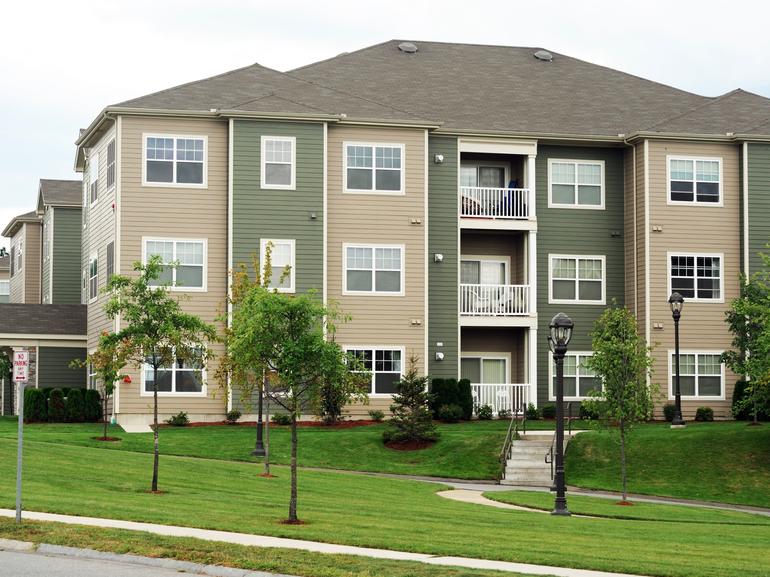Affordable Housing in the Midwest: A Look at Cities Taking Bold Steps Toward Affordable Living

While the Midwest was historically considered a more affordable option than its coastal counterparts, even the cities in the center of our country with a lower cost of living are not immune to rising housing costs. The Kenan Institute of Private Enterprise found that housing costs are becoming more burdensome than ever, with over 40% of renters spending nearly one third of their income on rent alone. Couple that with housing prices rising faster than wages, and we have an environment that makes the supply-demand imbalance even more prevalent.
Despite the hurdles municipalities around the country face, there's proof that it's still a winnable fight. Thanks to citizen-centric measures taken at the local and state levels, we're beginning to see positive changes that offer more housing options for residents who previously may have had to make difficult budgeting decisions to afford their homes.
Minneapolis, Kansas City and Omaha — three major cities in the midwestern United States — are becoming pioneers in the fight to create more affordable housing for their residents. What's being done in these three metropolitan areas shows how a proactive, communal-based approach can yield results.
From bold zoning initiatives to legislative changes, each idea serves as a potential model for other cities in the Midwest and across the country.
The Minneapolis Approach: Zoning Reform and Community Engagement
Minneapolis boasts the most robust job market of the three cities studied, thanks to a burgeoning tech industry. However, their economic success is a double-edged sword, as the more attractive the job market, the higher the demand for housing. The result is that many residents are priced out of their neighborhoods and forced to move further away from work, affecting traffic, traffic strain on transit resources and repair, and tax collection. The local government has taken bold initiatives to combat this and encourage more affordable housing within the city limits.
Minneapolis's 2040 Comprehensive Plan
In 2019, the city passed its 2040 Comprehensive Plan, which focused on increasing housing supply to meet demand while ensuring affordability. Essentially, it sought to fill the city's needs to accommodate residents in 2040.
The plan targeted older policies that prevented equal housing opportunities for people of color and sought to remove barriers that prevented a higher density of multifamily properties from being built.
Since its implementation, Minneapolis has seen substantial growth in prioritizing affordable housing, such as:
- Committing $31 million to produce 222 affordable homeownership housing units, with 75% of buyers being Black, Indigenous, or People of Color (BIPOC) residents
- Kept rent increases to just 1%
- Helped combat inflation through its housing policies
The 4D Tax Abatement
Minneapolis has made good use of a certain Minnesota property tax classification through its 4D Affordable Housing Program, also known as the 4D Tax Abatement, to preserve affordable housing. This program offers rental property owners a tax reduction in exchange for their commitment to keep at least 20% of their property’s units at an affordable level for ten years. Since its passing, Minneapolis has kept over 3,000 rental units affordable for residents.
Kansas City: Public-Private Partnerships and Innovative Financing
Kansas City faces a housing supply crisis for its low- and moderate-income residents. A previous lack of policies protecting tenants' rights or ensuring accountability for landlords or developers meant it felt very much like the Wild West regarding housing. However, Kansas City has taken significant steps to improve the situation.
An Ambitious Goal for Affordable Options
Kansas City's goal is to create 10,000 affordable units by 2027. In addition, the city's government has set a more immediate goal of producing 8,000 units in the next four years by increasing the Housing Trust Fund, leveraging tax incentives to landlords and property developers and attracting new opportunities for private investment in housing.
Tackling Equal Opportunities for Housing
In addition to its strategic approach for enticing private investments and leveraging tax incentives, the local government has also opened itself up to relying on more collaborative models to tackle such a complex issue.
Many of its projects focus heavily on addressing previous racial disparities that made homeownership for minorities challenging. The city has also allocated significant resources towards creating new construction and homeownership initiatives that involve transitional or supportive housing for veterans, LBGTQ+, women in recovery, and residents experiencing homelessness or mental health crises.
The results have been significant and are only getting better. Now in its third round of funding, the Housing Trust Fund has created or preserved over 1,800 affordable housing units. Meanwhile, funds allocated by the city have created more than 20 projects that support over 1,300 more affordable units for residents.
Omaha: Grassroots Advocacy and Policy Reform
Omaha faces a similar challenge to Kansas City: a lack of affordable housing options and stagnant wages that make paying for a mortgage or monthly rent harder every year. The city has had to grapple with its history of redlining and segregation to address the issues causing its supply shortages. Its approach focuses heavily on community-driven solutions that address racial disparities to bolster new supply options.
Reducing the Effect of Historical Redlining
Omaha has opened itself up to working with more community-driven approaches to combat housing shortages. Namely:
- Addressing Redlining Through Community Engagement: Led by the University of Nebraska at Omaha, this project brings communities together to identify and prioritize housing needs through "community-focused collaboration."
- Omaha Spatial Justice Project: This project involves developing a database of homes in Douglas County that previously held racially motivated restrictions to better understand the city's economic disparities caused by racism.
- Working with local nonprofits, businesses and residents in historically redlined areas to develop neighborhood-specific solutions.
The Bottom Line
While the Midwest is not alone in tackling affordable housing issues, it's worth noting that the approaches of Minneapolis, Kansas City and Omaha all share a commitment to empowering their residents to enact lasting change.
As the U.S. continues to deal with skyrocketing rents, gentrification and the growing divide between supply and demand, the lessons from these cities may offer a roadmap for translating lofty policy goals into tangible, community-driven action.
